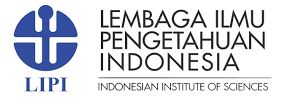-
 Oktober
Vol 7 No 1 (2025)
Oktober
Vol 7 No 1 (2025)This edition presents contributions from 11 authors affiliated with 9 institutions in Indonesia and Latvia, offering a focused examination of privacy protection in the digital sphere, the function of supplementary information in judicial proceedings, shifting power relations between the legislature and the president, the strengthening of legal certainty for confidentiality agreements as instruments for safeguarding trade secrets, and the effectiveness of electoral supervisory bodies in resolving disputes arising from the 2024 elections at the regional level.
-
 April
Vol 6 No 2 (2025)
April
Vol 6 No 2 (2025)This edition brings together 23 authors from 9 institutions across from Indonesia and Nigeria, who collectively examine progressive approaches to restorative justice in the national criminal code, the formulation of positive norms for social media use in marketing communication, the legal politics of water resource management in protecting local community rights, the interplay between economic and political dynamics in the landscape of corruption, and the ideal legal framework governing journalists and its application in press reporting.
-
 October (Special Issue: Implications of the Constitutional Court Decision on the Regional Head Election Process in Indonesia)
Vol 6 No 1 (2024)
October (Special Issue: Implications of the Constitutional Court Decision on the Regional Head Election Process in Indonesia)
Vol 6 No 1 (2024)The decision of the Constitutional Court (MK) No.60/PUU-XXII/2024 has implications for changes in the rules regarding election requirements and mechanisms that can have a direct impact on local and national political dynamics. The Constitutional Court's decision concerning the threshold for regional head candidacy can change the political map in the regions. If the Constitutional Court lowers or removes the threshold, more candidates may be able to run, thus increasing the opportunity for independent candidates or candidates from small parties to compete. This could potentially increase plurality and democracy at the local level, affirm people's political rights to run for office, and potentially strengthen people's political participation. What will be the fate of regional head elections after the Constitutional Court's decision is enacted?
___
Putusan Mahkamah Konstitusi (MK) No.60/PUU-XXII/2024 memiliki implikasi perubahan aturan mengenai syarat dan mekanisme pemilihan yang dapat berdampak langsung pada dinamika politik lokal dan nasional. Putusan MK yang menyangkut ambang batas pencalonan kepala daerah dapat mengubah peta politik di daerah. MK menurunkan atau menghapus ambang batas, dan kemungkinan lebih banyak kandidat yang bisa mencalonkan diri, sehingga memperbesar peluang bagi calon independen atau kandidat dari partai-partai kecil untuk bersaing. Ini berpotensi meningkatkan pluralitas dan demokrasi di tingkat lokal, menegaskan hak politik masyarakat untuk mencalonkan diri, dan berpotensi memperkuat partisipasi politik masyarakat. Bagaimanakah nasib pemilihan kepala daerah pasca putusan MK ini diberlakukan?
-
 April
Vol 5 No 2 (2024)
April
Vol 5 No 2 (2024)This edition presents contributions from 19 authors affiliated with 5 institutions who critically examine the protection of constitutional rights and the vulnerabilities of marginalized groups, ranging from safeguards for the right to education of believers in local faith traditions in Jepara and power imbalances in cases of sexual violence on university campuses, to the commodification of the Indonesian Constitutional Court’s authority through judicial activism, the enforcement of election law against black campaigns on social media, and the rise of child marriage in Palu, Sigi, and Donggala.
-
 October (Special Issue: The Omnibus Law on Job Creation in the Perspective of the International Community)
Vol 5 No 1 (2023)
October (Special Issue: The Omnibus Law on Job Creation in the Perspective of the International Community)
Vol 5 No 1 (2023)The Job Creation Law was once submitted for review to the Constitutional Court. Through decision number 91/PUU-XVIII/2020, the Constitutional Court stated that the formation of the Job Creation Law was contrary to the 1945 Constitution and did not have conditionally binding legal force as long as it did not mean 'no amendments were made within two years of this decision being pronounced'. The Supreme Court of the Constitution also stated that the Job Creation Law would still be in force until repairs were made in accordance with the deadline. The Constitutional Court ordered legislators to make improvements within a maximum period of two years after the decision was pronounced. After the revision and re-approval of the omnibus law, of course, received a lot of responses.
___
Undang-Undang Cipta Kerja sempat diajukan pengujian ke Mahkamah Konsitutusi. Melalui putusan nomor 91/PUU-XVIII/2020, Mahkamah Konstitusi menyatakan pembentukan Undang-Undang Cipta Kerja bertentangan dengan UUD 1945 dan tidak mempunyai kekuatan hukum mengikat secara bersyarat sepanjang tidak dimaknai ‘tidak dilakukan perbaikan dalam waktu dua tahun sejak putusan ini diucapkan’. Mahakmah Konstitusi juga menyatakan Undang-Undang Cipta Kerja masih tetap berlaku sampai dengan dilakukan perbaikan pembentukan sesuai dengan tenggang waktu. Mahkamah Konstitusi memerintahkan kepada pembentuk undang-undang untuk melakukan perbaikan dalam jangka waktu paling lama dua tahun sejak putusan diucapkan. Setelah dilakukan revisi dan disahkannya kembali omnibus law tentu mendapat banyak respons.
-
 April
Vol 4 No 2 (2023)
April
Vol 4 No 2 (2023)This edition features contributions from 49 authors across 13 affiliations, examining a wide spectrum of legal issues including the implementation of health insurance and electronic security rights registration, the role of customary and judicial sanctions in family and criminal cases, state intervention in regional taxation and land certification, the fulfillment of accessibility and refugee-handling policies, police discretion in demonstrations, gender equality in customary marriage, political party mandates on women’s electoral participation, the harmonization of regional financial regulations, legal protection of NFT-based intellectual works, unlawful land blocking by housing developers, and the allocation of child custody after divorce.
-
 October
Vol 4 No 1 (2022)
October
Vol 4 No 1 (2022)This edition features contributions from 22 authors from 7 affiliations, examine on topics ranging from the regulation of village governance supervision and guidance under the 2014 Village Law, the legal framework for eSports within Indonesian employment law, and the implementation of community policing by Bhabinkamtibmas, to the handling of election violations through the Sentra Gakkumdu, the recovery of state financial losses in the context of a welfare state based on law, the legal status of associations as legal entities for village-owned enterprises (BUMDes), the application of feminist legal theory in Indonesian legislation, the implementation of regional regulations on public order and community protection, and the governance of street children, vagrants, beggars, and buskers in Makassar City.
Language











1.png)






.png)

















